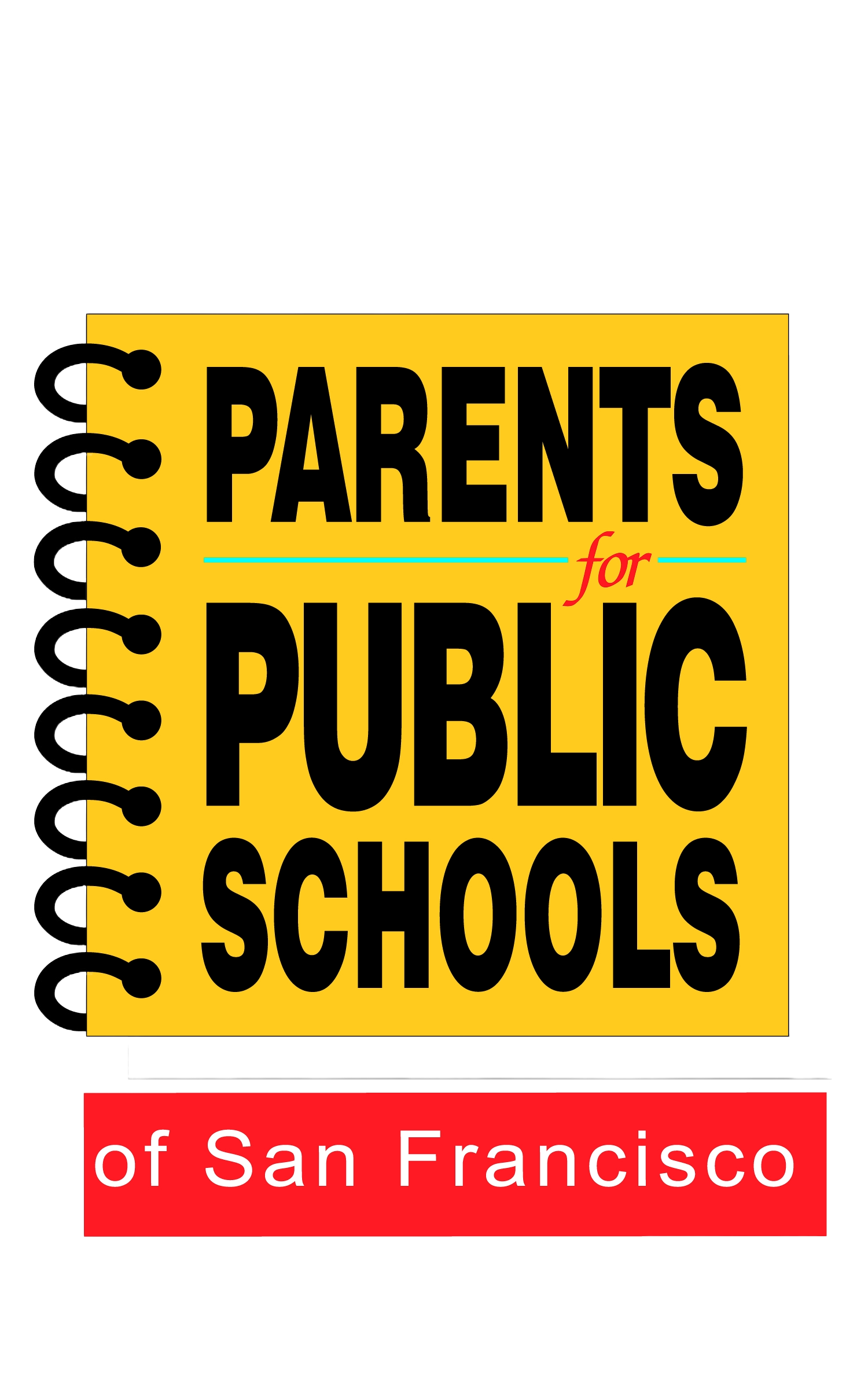ED Message
Our Schools! Our Voices! Not Commodities! Schools Are Our Collective and PPSSF logo in this picture.
Parents for Public Schools have been a constant in the community. We have always believed that strong San Francisco public schools create a strong city for all of us. PPS-SF strives to ensure that parents have the information, resources, and connections to peers and professionals that they need to successfully raise their children in San Francisco. We must continue to support legislation and policy that is contributing to the success of all our children. However, we are aware that not every student comes to mind when certain policies are being created and often these policies are causing more harm than good.
Over the last couple of months, our district has been holding a series of town hall meetings and community sessions geared toward providing transparency on school mergers and closures. Their goals have ranged from creating new school staffing models to exploring how to generate revenue from properties. Although their plan has laid out some ideas, there are also many questions left unanswered as the fate of schools hangs in the balance. The decision to close schools is never an easy one and districts often approach the task with the intent of engaging in a fair and transparent decision-making process to determine which schools to close. However, the intent rarely aligns with the reality of the outcome. To expand on this, let's look at Assembly Bill 1912: Emergency Apportionments: closure and Consolidation Requirements. It states that existing law imposes certain conditions and requirements on a school district that accepts an emergency apportionment that the governing board of the school district prepares a report on the financial condition of the school district. This bill requires the governing board of the school district to develop a set of metrics for the development of the equity impact analysis and to make those metrics public at scheduled meetings of the governing board district so the public can provide input on the metrics and analysis used. The bill also imposes additional duties on local agencies such as imposing a state-mandated local program. It states that provisions do not apply to a school district’s closure of a school due to unsafe conditions of a school’s facilities.
Knowing that our governing board of education is lawfully required to adhere to the guidelines we must ensure that at all public meetings, there is fair and adequate information sharing on what the equity impact analysis is showing in terms of data. We must also advise our governing board that there is no bias including research bias. Our schools are not commodities to be sold or traded. Our schools offer safe and caring hubs for students and their families across generations.
We must be sure that this legislation is not being used in a way to justify the means.
It is no secret that there has been expressed emphasis on “student outcomes”. The most problematic concept in school closure decisions is the way that our board is inadvertently suggesting “blame and victim shaming” upon lower-income communities by using student outcomes, including enrollment to serve as a basis of the need for closures. The problem of underachievement is not the fault of the student who attends these schools, nor is their enrollment or facilities. The impact of school closures in San Francisco has been historically disproportionate and any future school closures will negatively impact low-income communities of color where families may not be as quick to voice their dissent and/or are unable to galvanize mass support. When schools in these communities close, families lose the wholistic and community development asset of the school. Schools are collective homes where the joy of learning and community takes place. Families who trust their school feel less stressed about safety, achievement progress and overall student learning which includes wellness supports and services.
Through truly equitable analysis, our board will get a clear picture of why school closures are not an equitable or accessible approach to the problems that are currently surrounding our district.

